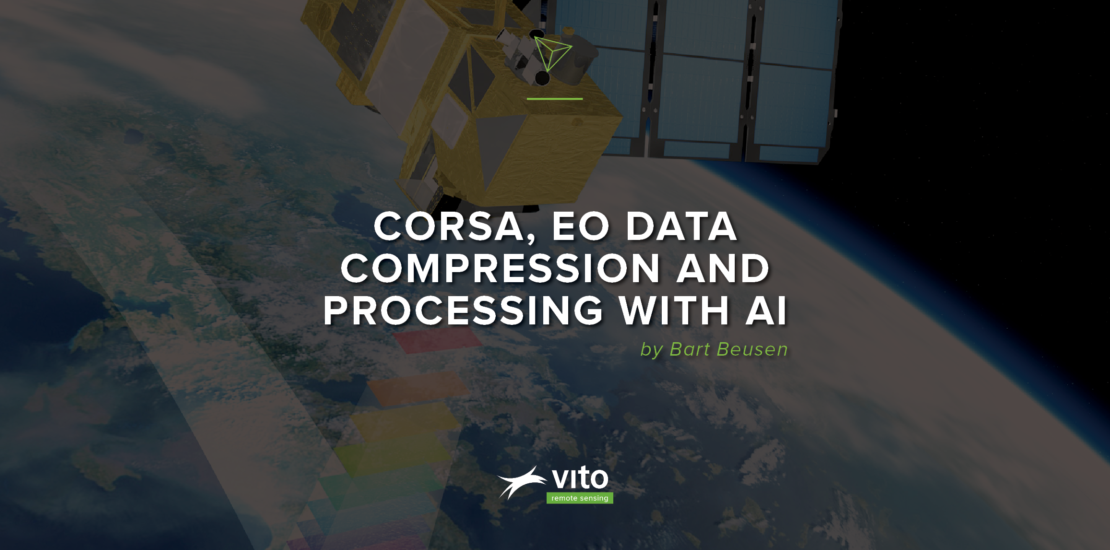- February 16, 2023
- Posted by: EARSC
- Category: Members News

With the huge amount of data being collected by several Earth observation missions, limitations in data downlink capacity and storage have become a major obstacle in fully utilizing all the valuable information. Within the CORSA project, funded by the European Space Agency’s PhiLab EO Open Science for Society framework, we have developed a novel AI-based method for near-lossless image compression which allows us to optimize the use of available data storage and perform various image analysis tasks directly on the compressed image vectors. Discover more about CORSA, a game-changer that will revolutionize the way we use data from earth observation missions, making it more efficient and effective than ever before.
- by Bart Beusen
SMART EO DATA REFINING
Traditional earth observation data flows often use basic processing chains that compress and transmit unnecessary data due to the fact that each step largely ignores the remainder of the flow. This can lead to compressing and transmitting useless data e.g. image areas with cloud cover. Edge computing, which brings computation closer to the data source, can help to resolve these bottlenecks by reducing the volume of data that needs to be transmitted.
A generic approach to this problem can be set up using the AI (Artificial Intelligence) concept of self-supervised learning. In this approach, meaningful image representations of the semantic content can be learned without the need for human interaction to label specific feature classes. The models can be trained on-ground and incrementally finetuned on-board, so there is no need to downlink a large amount of training data. …
Read more at https://blog.vito.be/remotesensing/corsa
